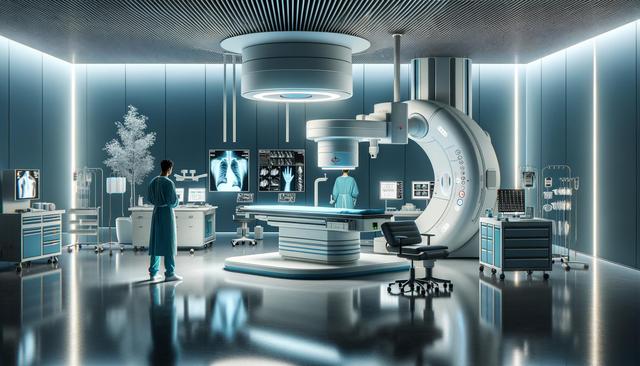The Role of X-Ray Technicians in Healthcare
X-ray technicians, also known as radiologic technologists, are critical members of the medical team who assist in diagnosing patients by capturing images using X-ray equipment. These professionals operate specialized imaging machines to create visuals of the inside of the human body, helping physicians detect and monitor conditions such as fractures, infections, or tumors. X-ray technicians often work in hospitals, urgent care centers, and facilities offering diagnostic imaging services, ensuring that high-quality images are produced while following strict safety protocols to minimize radiation exposure to patients and themselves. Their technical skills are matched by their ability to provide compassionate, patient-centered care, especially when working with individuals experiencing discomfort or anxiety.
As the demand for diagnostic imaging grows, so does the need for skilled X-ray technicians. Their responsibilities may include preparing patients for procedures, positioning them correctly for optimal imaging, and ensuring that all equipment is functioning properly. In many settings, they also maintain detailed records and collaborate closely with radiologists to ensure accurate interpretation of images. With technological advancements in digital imaging and medical software, X-ray technicians must stay updated with the latest tools and techniques through ongoing education and training.
Training and Educational Pathways
To become an X-ray technician, individuals typically need to complete an accredited radiologic technology program, which can be pursued through community colleges, technical schools, or universities. These programs often lead to an associate degree, though some institutions offer more advanced degrees. Many aspiring professionals now opt for a Radiology Online Degree to gain flexibility and access to quality education without relocating. These online programs combine virtual coursework with clinical internships in local healthcare facilities, ensuring students gain both theoretical knowledge and hands-on experience.
Radiology Online Courses cover subjects such as:
- Anatomy and physiology
- Patient care procedures
- Medical ethics and law
- Radiation physics and protection
- Imaging techniques and equipment handling
After completing a degree program, students must pass a certification exam, such as the one offered by the American Registry of Radiologic Technologists (ARRT), to become licensed or registered in their state. Continuing education is often required to maintain licensure, and professionals can pursue an Online Radiology Degree at the bachelor’s level to expand their career options or specialize further.
Work Environment and Career Outlook
X-ray technicians are employed in a wide range of healthcare settings, including hospitals, outpatient clinics, physician offices, and imaging centers. Facilities offering diagnostic imaging services are increasingly important as outpatient care becomes more common, leading to a growing number of job opportunities in non-hospital environments. The work environment is typically clean, organized, and equipped with sophisticated machinery. Technicians may be required to stand for long periods and help maneuver patients who need assistance.
According to labor statistics, employment for radiologic technologists is projected to grow steadily over the coming years. The aging population and increased need for diagnostic imaging are key drivers of this trend. Technicians who are certified in multiple imaging modalities, such as computed tomography (CT) or magnetic resonance imaging (MRI), may find even more opportunities for advancement and specialization. Many professionals choose to enhance their careers by enrolling in ongoing Radiology Online Courses that allow them to stay competitive in the job market.
Skills and Qualities for Success
Success as an X-ray technician requires a blend of technical proficiency and interpersonal skills. Operators must be detail-oriented, as they are responsible for capturing images that meet diagnostic standards. Physical stamina is also important, especially when assisting patients with limited mobility or handling heavy equipment. Additionally, communication skills are vital in explaining procedures, answering patient questions, and working effectively with medical staff.
Key qualities that contribute to a successful career include:
- Empathy and patience when dealing with distressed or anxious patients
- Strong problem-solving abilities for addressing equipment or positioning challenges
- Technical aptitude to operate complex machinery and interpret imaging results
- Commitment to ongoing education through Online Radiology Degree programs or workshops
Many technicians also benefit from certifications in specialized imaging fields. These additional credentials not only increase job prospects but also demonstrate a commitment to excellence in the field of radiologic technology.
Opportunities for Career Advancement
Once established in the field, X-ray technicians have several pathways to advance their careers. Some choose to specialize in areas such as mammography, bone densitometry, or cardiovascular imaging. Others transition into supervisory or administrative roles within imaging departments, where they oversee operations and mentor new staff. Pursuing a bachelor’s or even a master’s level Online Radiology Degree can open doors to positions in education, research, or healthcare management.
Those interested in teaching may become instructors in Radiology Online Courses, sharing their knowledge and experience with the next generation of technicians. Alternatively, experienced professionals can move into roles as equipment sales specialists or application trainers, working with imaging technology companies. Career flexibility and professional growth are strong motivators for many in this field, especially given the ability to pursue additional certifications and education online while continuing to work full-time.
Conclusion
For individuals considering a role in healthcare that combines technical expertise with meaningful patient interaction, becoming an X-ray technician is a compelling choice. With numerous facilities offering diagnostic imaging services and a growing demand for skilled professionals, this career path offers stability, variety, and opportunities for advancement. Whether you’re just beginning your journey or looking to enhance your qualifications through a Radiology Online Degree or Radiology Online Courses, the field of radiologic technology provides a strong foundation for long-term success and growth.




Leave a Reply